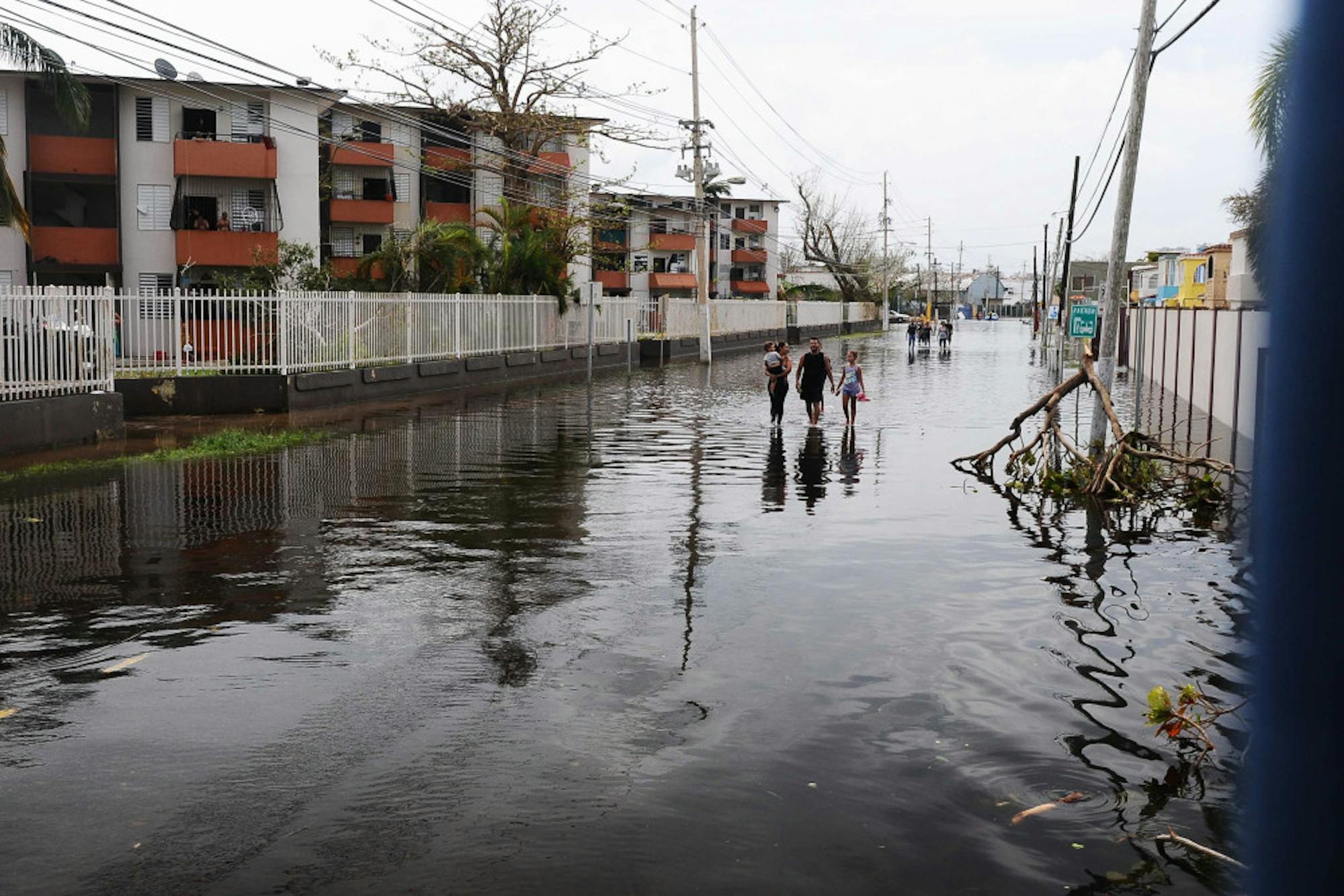Editor’s note: This is the second part of a two-part story. Part 1 was published on Nov. 7 and can be found online.
For those affected by natural disasters, the days, weeks and even months after the incident can be trying times. For students at Tufts who are unable to be with their families, these periods can be especially difficult.
Last fall, Hurricane Maria touched down in Puerto Rico as a Category 4 storm, affecting numerous Tufts students who call the island home or have family there. One such student, Alfredo Gutierrez, is a junior from Ponce, Puerto Rico.
As the island is hit by hurricanes every year, Gutierrez described not being very worried in the days before Maria made landfall. When the storm struck, however, power lines and cell towers were toppled, knocking out communication all across Puerto Rico.
Gutierrez, who was at Tufts when Hurricane Maria hit Puerto Rico on Sept. 20, 2017, first became aware of its effects from the news but noted that the reports did not address the storm's local impact.
“The news was the first source, but the news doesn’t really tell you how, specifically, your community was affected,” he said.
Without information from home, Gutierrez found solace in communicating with other Puerto Rican students on campus.
“We were reaching out to each other constantly because you just don’t know what your family’s going through,” he said. “This sounds extremely morbid and exaggerated, but you don’t know if they’re okay. You don’t know if they’re in the hospital, you don’t know if they’re doing fine … That uncertainty was a very difficult position to be in.”
Relief came 10 days later for Gutierrez when he received a call from an unknown number, which turned out to be his mother. Despite being understandably devastated by the damage that Hurricane Maria had caused to the country and local community, she passed on the good news that the family and its house were okay.
“The worst part wasn’t the actual hurricane ... it was the aftermath,” Gutierrez said. “Every day was a struggle to get gasoline, even food [in Puerto Rico]. Knowing that they [were] struggling every day and I [was] here in this beautiful school, living a great life, I felt a little guilty.”
Cell service was restored to Ponce in late November, finally giving Gutierrez the ability to communicate with his family on a consistent basis — a luxury he had previously never considered.
“You take it for granted,” Gutierrez said. “I barely called my parents before the hurricane because it [was] ... so easy. It’s just a phone call — whatever. But then you don’t have that, and it hits you really hard. So now, it’s so much better just knowing that you can be in communication and not taking that for granted and just calling as much as you can."
When Gutierrez wanted to return home over Thanksgiving break, his parents strongly advised against doing so.
“They were like, ‘We don’t want you to see this; we don’t want you to be here,’” Gutierrez said. “It was a feeling [that] I wanted to go back, but it probably wouldn’t be best for my emotional stability."
As a result, Gutierrez returned to Puerto Rico during Tufts' winter break for the first time since Hurricane Maria. By that point, power had been restored to some parts of the island and lines at the supermarket were no longer as extreme as they had been during the months before.
“Things were getting back to normal,” Gutierrez said. "I felt like, ‘Okay, I’m glad I saw this, and I’m glad I see that things are getting better.’"
Regardless of the physical state of the island, though, Gutierrez noted that the effects of the hurricane have and will continue to plague Puerto Ricans. Even now, with many aspects of his community having returned to normal operations, Gutierrez noted Maria's lasting impact on Puerto Rico's memory.
“It comes up in conversation every day. It’s stained [the community],” he said.
Another Tufts student affected by Hurricane Maria was junior Jacquie Bonnet, who is also from Puerto Rico. Like Gutierrez, Bonnet was pained by the knowledge that her family was struggling so far away and that she could not do anything to help them.
“I know they were having a bad time and struggling with food and water, so my heart was shattered to pieces because I had no way of helping them,” she told the Daily in an electronic message.
Bonnet echoed Gutierrez's sentiment that the camaraderie in Tufts' Puerto Rican community made her feel very supported during a difficult time.
“All my Puerto Rican friends on campus, we have a group message and would talk daily,” Bonnet said. “We were ... constantly reminding everyone that if someone needed support, we were there. We were all scared and sad, but we had each other to rely on.”
Bonnet noted her appreciation for the entire Tufts community's conduct in the aftermath of the hurricane, explaining that many people graciously extended their support.
“My teachers were so nice,” Bonnet said. “Especially the teachers from the [Department of Theatre, Dance, and Performance Studies] … I can’t even describe how nice it felt that all my teachers and the whole faculty of the drama department would send me emails and give me hugs and were just there for me. I’m forever grateful for this and truly honored to be part of such a wonderful community at Tufts."






